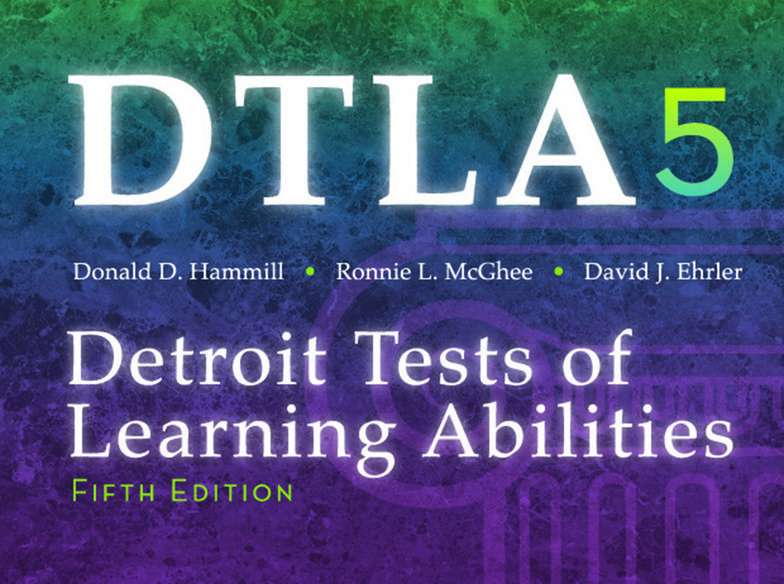(DTLA-5) Detroit Tests of Learning Aptitude - 5th Edition
Ages: 5 - 21 years
Testing Time: Untimed
Administration: Individual
The Detroit Tests of Learning Abilities–Fifth Edition (DTLA-5) is the oldest and most venerable of the tests of specific cognitive abilities. The figure below illustrates the DTLA-5 test structure. The test includes 12 subtests: Humanities/Social Studies, Science/Mathematics, Word Opposites, Word Associations, Geometric Matrices, Geometric Sequences, Sentence Imitation, Word Span, Design Reproduction, Reversed Letters, Trail Making, and Rapid Naming. The results of the subtests can be combined to form 9 composites. Six of these composites represent different cognitive subdomains (Acquired Knowledge, Verbal Comprehension, Nonverbal Problem Solving, Verbal Memory, Nonverbal Memory, and Processing Speed); two of these composites represent larger, important cognitive domains (Reasoning Ability and Processing Ability). One global composite is formed by combining the results of all 12 of the DTLA-5 subtests and represents general cognitive ability. Examiners can administer the subtests from one or both of the DTLA-5 domains, depending on the purpose of the evaluation.
Complete Kit Includes:
Examiner’s Manual, Picture Books 1 and 2, 25 Examiner Record Booklets, and 25 Student Response Booklets, all in a sturdy storage box
User Qualifications Required ... See Order Form Here
Donald D. Hammill, Ronnie L. McGhee, David J. Ehrler



